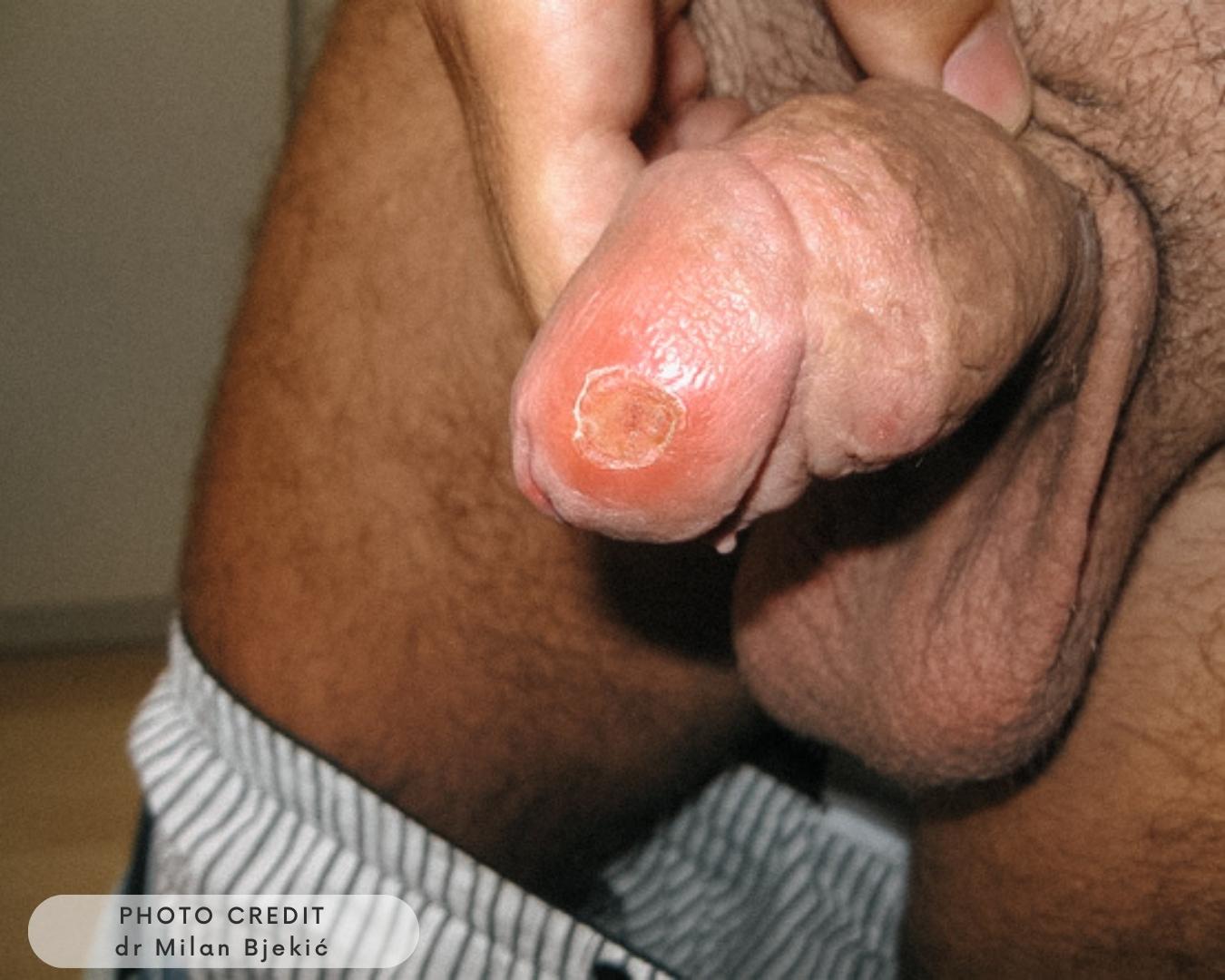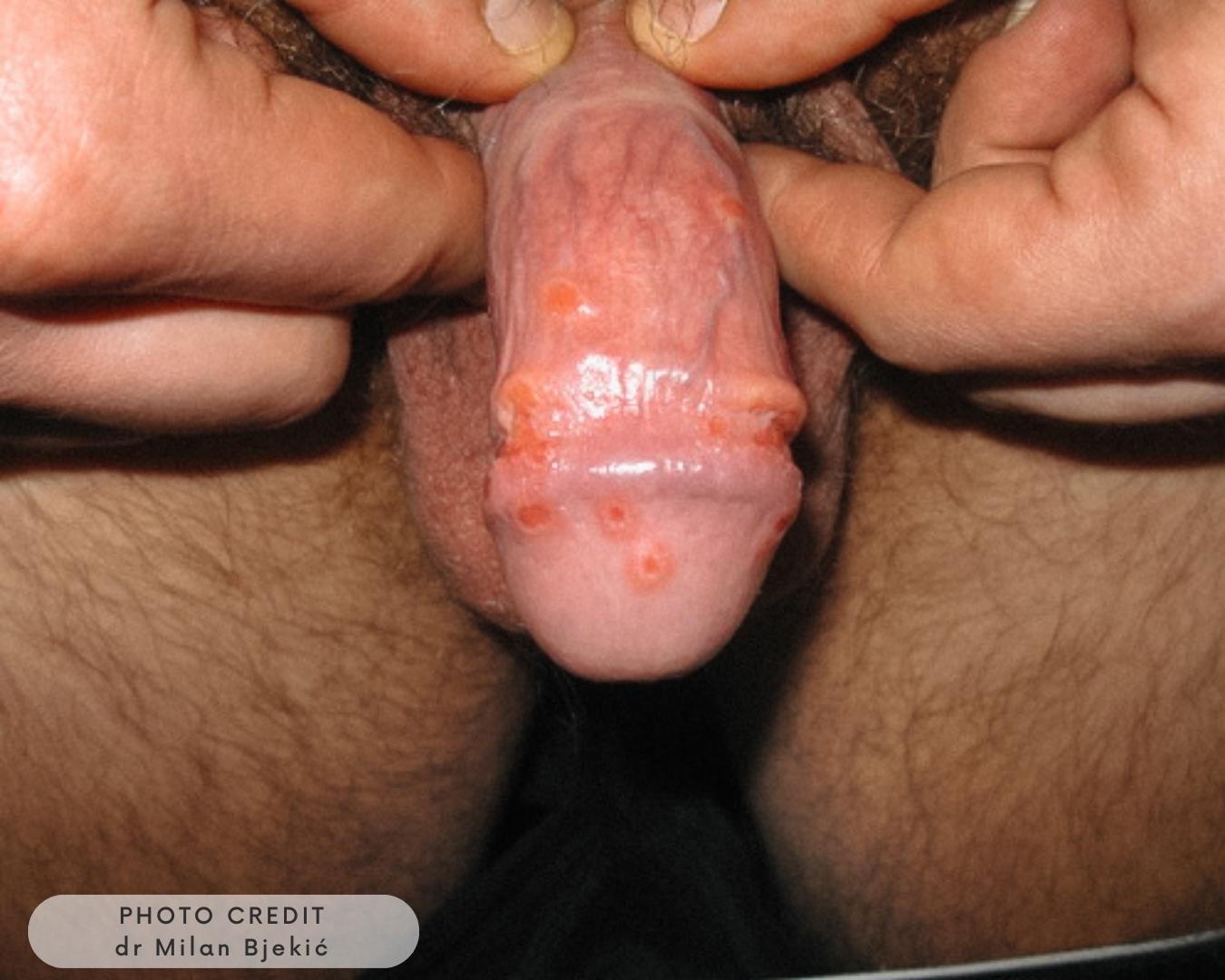Prepared by: Bratislav Prokić, June 2023
Review: Dr. Milan Bjekić, dermatovenerologist,
City Institute for Skin and Venereal Diseases – Belgrade
What are the symptoms of syphilis?
Syphilis symptoms are manifested differently in relation to the four stages of the disease: primary, secondary, latent and tertiary stages. Syphilis can give a lot of different symptoms that resemble various diseases, and that's why they call it the “great imitator”.
Primary syphilis
It appears about 3 weeks (10 days to 3 months) after infection, when one or more sores appear at the point of entry of the bacteria into the body - chancre (ulcus durum). A chancre is usually, but not always, a hard, round, painless sore. During 1 to 5 weeks, the sore goes away without treatment, but the infection remains and moves to the second stage.


Secondary syphilis
It is most often manifested in the period from 2 to 8 weeks after the appearance of chancre: rash and lesions, most often on the palms and feet, then swollen lymph nodes and fever, and loss of hair in the hairy part of the head (alopecia), headache, pain in the muscles and bones, etc. Symptoms can be mild, but noticeable. The symptoms go away even without treatment, and the infection remains and goes into a latent stage.


Latent syphilis
This stage is without signs and symptoms. The early latent stage lasts up to a year from the moment of infection, and during that period the person is contagious to their sexual partners. The late latent stage lasts one year after infection and then the person is not contagious to their sexual partners.
Tertiary (or late) syphilis
Tertiary syphilis is a slowly progressing disease, which can affect the heart, brain and any other organ. Symptoms may appear 5 to 30 or more years after infection.
What are the possible complications of syphilis?
Without therapy, syphilis can spread to the brain and nervous system, eyes, ears at any stage. This can have permanent effects on the mental state, loss of sight or hearing.
When is a person infected with syphilis infectious?
A person infected with syphilis, who has not been treated, is infectious up to one year after infection, that is, during the primary, secondary and early latent stages. After one year, the pation is not infectious anymore, just as in the beginning, in the period before the appearance of chancre, (so-called incubation period).